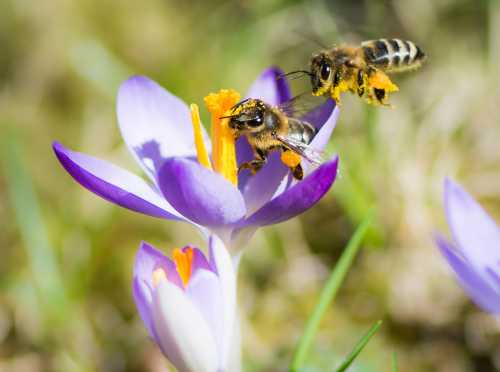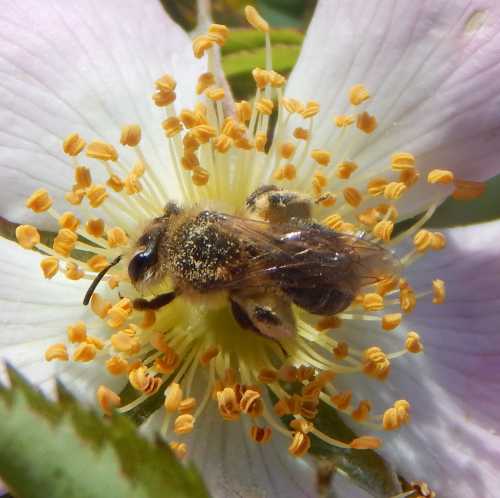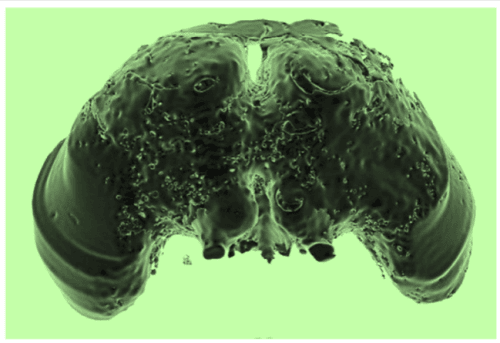Do Bees Have A Pancreas?
The short answer is:
No, bees do not have a pancreas, although they have a digestive system, and they also produce insulin-like peptides which perform some functions similar to insulin.
The Function Of The Pancreas
In humans, the pancreas is a major organ within the abdomen. It performs two major functions:
- it produces insulin, which is a hormone known to be important in the regulation of blood sugar levels;
- it plays a part in the breakdown of food within the digestive system.
However, bees do not have a pancreas, yet they are known to create insulin-like peptides.
The honey bee digestive system
The digestive tract of the honey bee is divided into three different compartments: foregut, midgut and hindgut. Most of the digestive process takes place in the midgut in the digestive tract of the honey bee, where most food, including protein, starch and carbohydrate, are broken down. This topic has been covered in greater detail elsewhere, see: Do Bees Have A Digestive System?
However, given that bees have no pancreas, how do they regulate blood sugar levels?
Sugar regulation
During digestion, nectar is transported into an expandable crop (honey stomach) in the abdomen. Whilst in the crop, it has been found that bees can increase the sugar concentration in their crop. This is helpful to bees for two reasons:
- to provide more energy to enable foraging over further distances1;
- to increase their thoracic temperature to enable foraging in sub-optimal temperatures2.
Thus, despite having no pancreas, bees can regulate their sugar concentrations.
Insulin
It has been shown that bees produce insulin-like peptides in the brain3 and in the fat body4 where most insect metabolism takes place.
In addition to its involvement in metabolism, it has been shown that insulin modifies honey bee worker behaviour3,5.
For example, it has been shown that insulin has an effect on the division of labour within a honey bee colony. As worker bees become older, they move from performing ‘nursery’ tasks within the hive, to general duties within the hive, to foraging – it is the older bees that forage.
It appears that this is in part due to changes in insulin concentrations within the abdomen – older (forager) workers have higher insulin levels than younger (nurse) bees. It is thought that insulin production linked to nutritional status of the individual bee may contribute to the change of role.
References
- J. C. Nieh, A. León, S. Cameron, and R. Vandame, “Hot bumble bees at good food: thoracic temperature of feeding Bombus wilmattae foragers is tuned to sugar concentration,” Journal of Experimental Biology, vol. 209, no. 21, pp. 4185–4192, 2006.
- K.-I. Harano and J. Nakamura, “Nectar loads as fuel for collecting nectar and pollen in honeybees: adjustment by sugar concentration,” Journal of Comparative Physiology A: Neuroethology, Sensory, Neural, and Behavioral Physiology, vol. 202, no. 6, pp. 435–443, 2016.
- Ament SA, Corona M, Pollock HS, Robinson GE. Insulin signaling is involved in the regulation of worker division of labor in honey bee colonies. Proc Natl Acad Sci U S A. 2008 Mar 18;105(11):4226-31. doi: 10.1073/pnas.0800630105. Epub 2008 Mar 12. PMID: 18337502; PMCID: PMC2393790.
- Nilsen KA, Ihle KE, Frederick K, et al. Insulin-like peptide genes in honey bee fat body respond differently to manipulation of social behavioral physiology. J Exp Biol. 2011;214(Pt 9):1488-1497. doi:10.1242/jeb.050393
- Mott CM, Breed MD. Insulin Modifies Honeybee Worker Behavior. Insects. 2012;3(4):1084-1092. Published 2012 Oct 24. doi:10.3390/insects3041084
If you found this page helpful or interesting, I'd really be grateful if you would share it with others - if not this page, perhaps another, such as Gardening For Bees.
Thank you so much :) .


